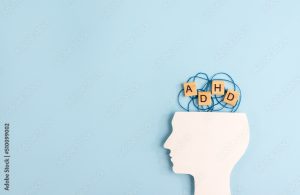Higher education institutions are committed to providing equal access to learning opportunities for all students, including those with disabilities. Understanding the framework for disability accommodations, the types of accommodations available, and the process for obtaining these accommodations is essential for students, educators, and administrators alike. This article aims to offer a comprehensive overview of navigating disability accommodations in higher education, ensuring that students with disabilities are supported in their academic pursuits.
Legal Framework
In the United States, the Americans with Disabilities Act (ADA) and Section 504 of the Rehabilitation Act of 1973 are the primary legal standards governing disability accommodations in higher education. These laws mandate that postsecondary institutions provide appropriate academic adjustments and services to ensure that their programs are accessible to individuals with disabilities.
Types of Accommodations
Disability accommodations in higher education are designed to address a wide range of needs, ensuring that students with disabilities have equal access to educational programs. Common types of accommodations include, but are not limited to:
- Extended Time for Exams: Providing additional time to complete tests and assignments.
- Note-Taking Assistance: Offering services such as note-takers, recording lectures, or access to lecture notes.
- Alternative Formats: Providing textbooks and materials in accessible formats, such as Braille, large print, or digital text.
- Assistive Technology: Offering technology or software that assists learning, such as screen readers, voice recognition programs, or specialized keyboards.
- Physical Accessibility: Ensuring that classrooms, laboratories, and other facilities are accessible to individuals with physical disabilities.
- Sign Language Interpreters: Providing sign language interpretation for students who are deaf or hard of hearing.
Process for Obtaining Accommodations
The process for obtaining disability accommodations varies by institution, but generally includes the following steps:
1. Self-Identification
Students must self-identify as having a disability to the appropriate office or department responsible for disability services. This is often referred to as the Office of Disability Services or the Disability Resource Center.
2. Documentation of Disability
Students are typically required to provide documentation of their disability from a qualified professional. This documentation should describe the nature of the disability, how it affects the student’s learning, and recommend specific accommodations.
3. Request for Accommodations
After submitting documentation, students may need to meet with a disability services coordinator to discuss their needs and request specific accommodations. This collaborative process ensures that the accommodations are tailored to the student’s individual needs.
4. Implementation
Once accommodations are approved, the disability services office coordinates with faculty and other relevant departments to implement the accommodations. Students are usually given a letter or form to present to their instructors, outlining the approved accommodations.
5. Ongoing Communication
Students are encouraged to maintain open communication with their instructors and the disability services office to ensure that accommodations are effectively meeting their needs. Adjustments to accommodations can be made as necessary.
Challenges and Solutions
While the process for obtaining accommodations is designed to be straightforward, students may encounter challenges, such as delays in receiving accommodations or misunderstandings about the nature of their disabilities. Advocacy and communication are key to overcoming these challenges. Students should be proactive in communicating their needs and seeking assistance from disability services offices, faculty, and peer support networks.
Conclusion
Disability accommodations in higher education are essential for ensuring that all students have the opportunity to succeed academically. By understanding the legal framework, types of accommodations available, and the process for obtaining these accommodations, students with disabilities can effectively advocate for their needs. Institutions of higher education, for their part, must continue to refine their policies and practices to support the inclusion and success of students with disabil




